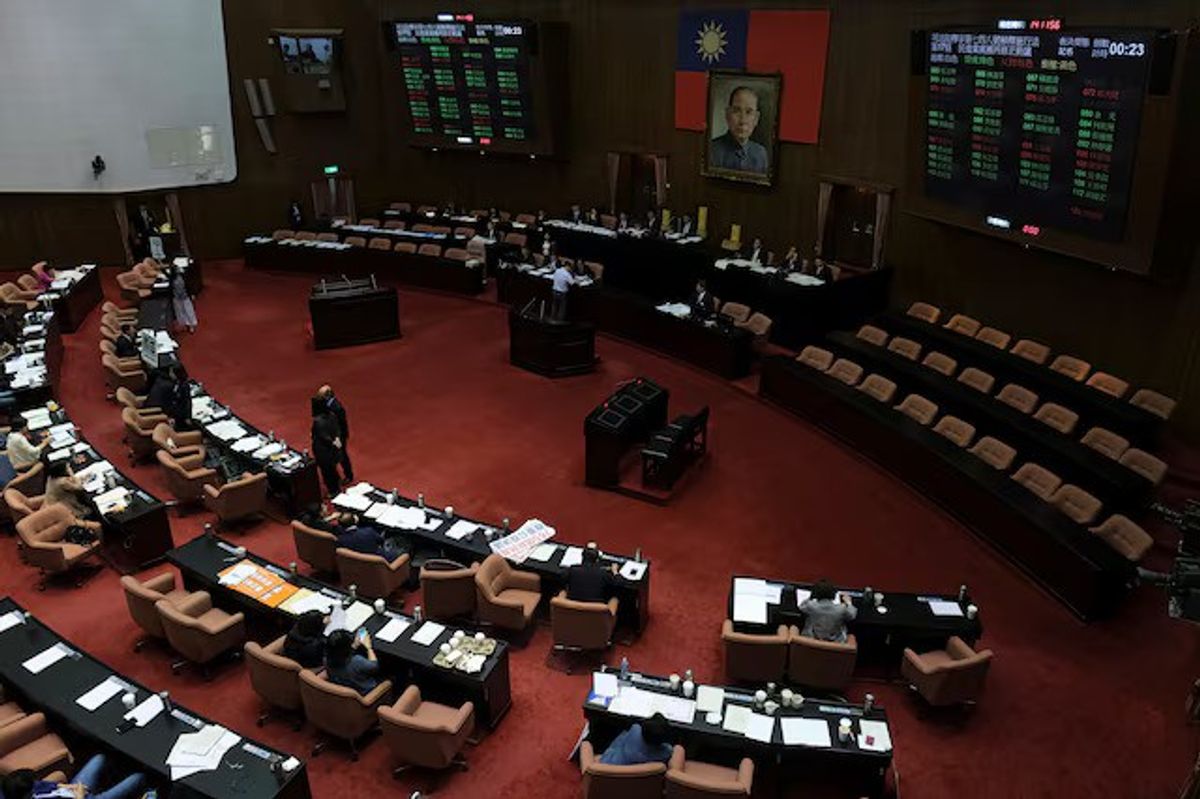Taiwan court ruling curbs expanded parliamentary powers
President Lai Ching-te challenges reforms, questions expanded parliamentary powers
AFP
News Agency Partner
AFP is a renowned international news agency, delivering comprehensive and reliable reporting on global events, trends, and issues.

Legislators inside the Legislative Yuan in Taipei, Taiwan May 17, 2019.
Reuters
Court ruled criminalizing "contempt of parliament" unconstitutional
DPP calls for unity and commitment to constitutional governance
Taiwan's top court on Friday struck out the most controversial sections of a law expanding parliament's powers, delivering a partial victory to the ruling Democratic Progressive Party, which had opposed the reforms.
The reform bills proposed by the main opposition party, Kuomintang, and passed in May with the help of Taiwan People's Party, had sparked street protests and chaos inside parliament.
President Lai Ching-te -- whose Democratic Progressive Party (DPP) lost its majority in parliament in January's elections -- had reluctantly signed the reforms into law and vowed to challenge them in the Constitutional Court.
Lai, who took office in May, argued that parliament should not "arbitrarily expand its powers".
The KMT, which is widely seen as pro-Beijing, and the upstart TPP argued that expanded parliamentary powers were needed to curb corruption.
But critics fear the laws could weaken self-ruled Taiwan's democracy against the influence of China -- which claims the island as part of its territory.
The ruling handed down on Friday found the most controversial sections of the law were unconstitutional.
They included criminalising "contempt of parliament" by government officials, who could face jail term and fines for lying during legislative hearings.
"It is not up to the parliament to make a one-sided judgement on whether the behaviour of the government heads when answering questions has the negative connotation of contempt, disregard or disrespect of the parliament," the judgement said, adding it "exceeded the scope of the legislative members' questioning power".
The court also reined in parliament's investigative powers, saying lawmakers could ask people to cooperate, but they could not be compelled to do so.
Lai had warned previously that the laws would have a significant impact on "Taiwan's future international competitiveness", citing concerns from both local and international business leaders that their "trade secrets" could be jeopardised.
His ruling party described Friday's judgement as "the most important in (Taiwan's) history of constitutional government" and called for unity in the parliament.
"There is no such thing as a loser or a winner. We hope that all lawmakers... will start anew and unite under the constitution so that the country can move forward and our democracy can continue to develop," DPP caucus whip Ker Chien-ming told reporters.










Comments
See what people are discussing